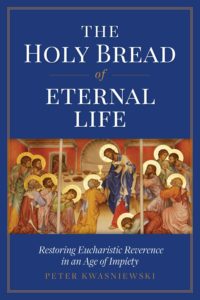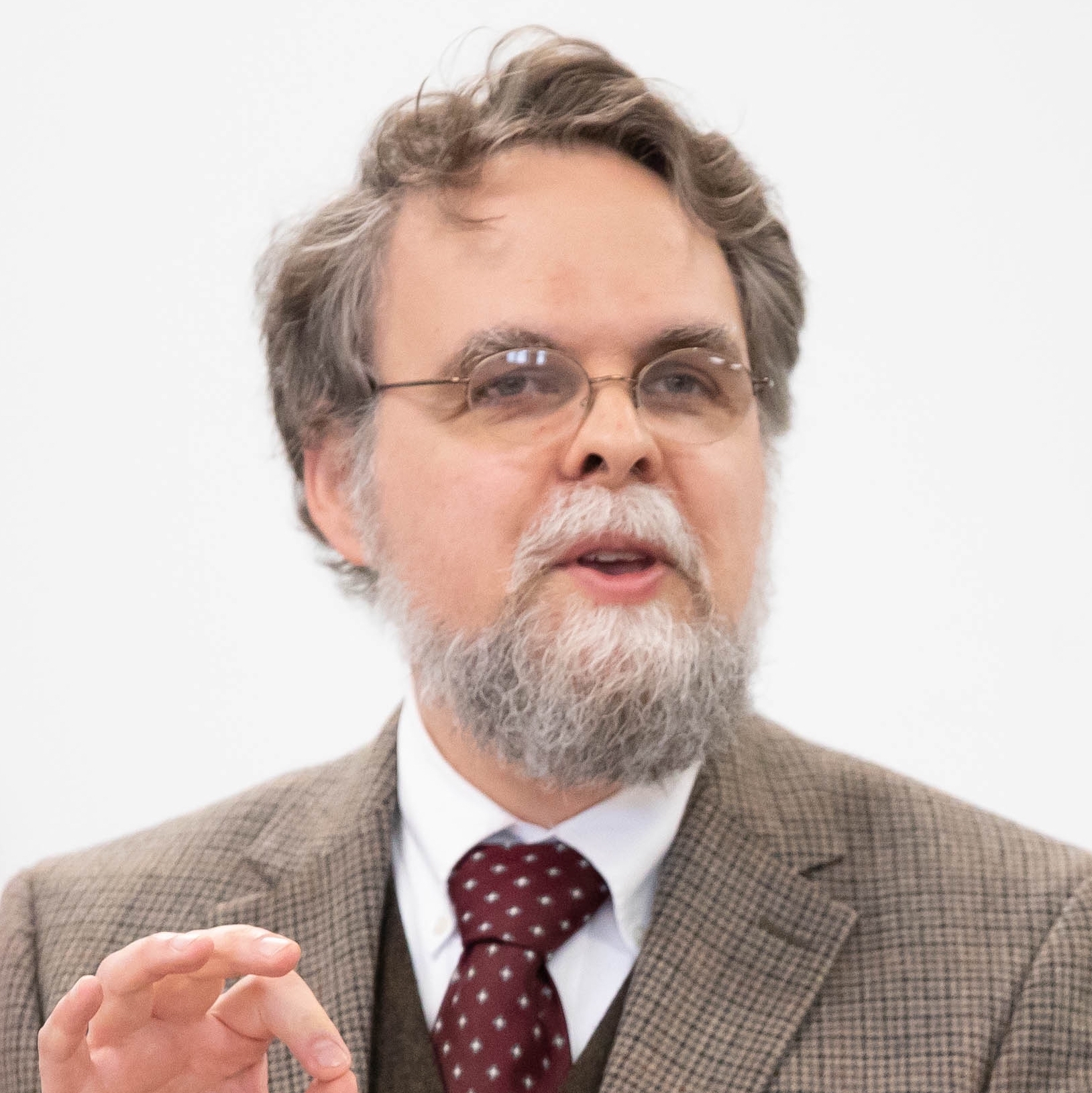I once overheard in a grocery store: “Darling, not everything you want is good for you.” There it was: in one simple phrase, the wisdom of a mother who knows that she should not buy whatever dessert or snack her child is asking for.
Holy Mother Church has—or once had—the same wisdom for her spiritual children. She said to the faithful: “Beloved, you may want to receive Communion, but you need to be sure you have prepared yourself for it; you must be in a right relationship with Our Lord.” Compare this with Reinhard Cardinal Marx’s recent statement about admitting to Communion anyone who presents himself or herself: “When someone is hungry and has faith, they must have access to the Eucharist. That must be our passion, and I will not let up on this.” Marx’s attitude seems to be the same as most members of the USCCB, who would not dare to refuse Communion to any public figure, regardless of his or her stances on any point of the law of God.
As the saying goes, Church history does not repeat, but it rhymes. We have seen many debates over the centuries about who should receive Holy Communion, when, and how often. There are, however, three principles that have always been taught by the Church and her sound theologians: first, since the Lord instituted the Most Blessed Sacrament for our benefit, we ought to have recourse to this divine food as often as we can; second, we should not receive unless we have a moral certainty that we are in a state of sanctifying grace; third, we should not receive so often, or so casually, that we lack the proper dispositions of faith and devotion demanded for a fruitful reception.
Orthodox. Faithful. Free.
Sign up to get Crisis articles delivered to your inbox daily
In the Third Part of the Summa Theologiae, Saint Thomas Aquinas poses the query: “Whether it is lawful to receive this sacrament daily?” After presenting five arguments against frequent reception, Thomas brings in the big guns for his sed contra argument: “Augustine says: ‘This is our daily bread; take it daily, that it may profit thee daily.’” In his typically balanced and sensible way, Thomas explains how we should think about the matter:
There are two things to be considered regarding the use of this sacrament.
The first is on the part of the sacrament itself, the virtue [power] of which gives health to men; and consequently, it is profitable to receive it daily so as to receive its fruits daily. Hence Ambrose says: “If, whenever Christ’s blood is shed, it is shed for the forgiveness of sins, I, who sin often, should receive it often: I need a frequent remedy.”
The second thing to be considered is on the part of the recipient, who is required to approach this sacrament with great reverence and devotion. Consequently, if anyone finds that he has these dispositions every day, he will do well to receive it daily. Hence, Augustine after saying, “Receive daily, that it may profit thee daily,” adds: “So live, as to deserve to receive it daily.”
But because many persons are lacking in this devotion, on account of the many drawbacks both spiritual and corporal from which they suffer, it is not expedient for all to approach this sacrament every day; but they should do so as often as they find themselves properly disposed. Hence it is said in De Eccles. Dogmat. 53: “I neither praise nor blame daily reception of the Eucharist.”
What I appreciate about this response is how well Thomas lays out the various aspects that we should consider and avoids a facile solution that comes down exclusively on one side or the other. He is clear that receiving Communion is vital for our spiritual life, but so is our preparation and readiness. This is why the kind of liturgy we attend is so important: the traditional liturgies of East and West thoroughly prepare us for Communion, an awesome moment of encounter with our Lord and God, an entry into the Divine that these rites take very seriously in their texts, ceremonies, and attendant customs. These liturgies developed as they did over the course of many centuries precisely to make us ready for the mysteries, to make us aware of their holiness and to stir up in us the right dispositions of humility, contrition, and adoration.
In reply to the third objection of this article, Thomas unfolds his thought further:
Reverence for this sacrament consists in fear associated with love; consequently, reverential fear of God is called filial fear, as was said above, because the desire of receiving arises from love, while the humility of reverence springs from fear. Consequently, each of these [love and fear] belongs to the reverence due to this sacrament, both as to receiving it daily, and as to refraining from it sometimes.
Hence Augustine says (Ep. 54): “If one says that the Eucharist should not be received daily, while another maintains the contrary, let each one do as according to his devotion he thinketh right; for Zaccheus and the Centurion did not contradict one another when the one received the Lord with joy, whereas the other said: ‘Lord, I am not worthy that Thou shouldst enter under my roof’; since both honored our Saviour, though not in the same way.” But love and hope, whereunto the Scriptures constantly urge us, are preferable to fear. Hence, too, when Peter had said, “Depart from me, for I am a sinful man, O Lord,” Jesus answered: “Fear not.”
In the same vein as the last sentence cited from Aquinas, a spiritual master of seventeenth-century France, Mother Mectilde of the Blessed Sacrament (1614–1698), urges her sisters and directees to receive more frequently and not to hold back—and this, at a time when not even nuns were permitted to receive daily:
He wants to come to you and nevertheless you do not receive Him. You have many small weaknesses that will be eradicated only by availing yourself of this Eucharistic bread. Why deprive your soul of an infinite good?… He wants to be united to you, in order to make you entirely one with Him. Do not refuse that which the angels consider themselves infinitely blessed and unworthy to receive….
You cannot give yourself too much to Jesus Christ, nor can you surrender too much to His intentions to possess you through this adorable Sacrament. You need to drown your weakness in His divine power and in the desire to be completely filled with Him….
It seems to me that a soul who communicates frequently receives a great deal more strength, grace, and blessing than those who refrain. Let us go to God with humility and trust. He is good with an infinite goodness. He knows our weakness and our incapacity; He will make up for it with His divine sufficiency.
Pope Saint Pius X agreed with Mother Mectilde, Saint Thomas Aquinas, and Saint Augustine in their encouragement of frequent—even daily—Communion. It’s true that Communion is not a reward for the strong. But neither is it food for the dead, who cannot eat. It is food for the living and the striving, for those who, adhering to God’s law, are hungry for the manna without which they know they cannot reach the Promised Land.
Saint Pius X was an intrepid reformer, particularly in his mighty effort to systematize Canon Law. The same mentality of reform showed itself on a humbler and more touching level in this Pope’s decision to lower significantly the age when children may receive the Holy Eucharist. He said that, as soon as a child can make an act of faith distinguishing between simple bread and the Eucharist, confessing the latter to be the true Body of Christ, he is ready to receive.
It is claimed that Pius X was moved to make this decision, at least in part, by hearing the story of Ellen Organ (1903–1908), known as Little Nellie of Holy God. In spite of her extremely young age, her crippling disabilities, and her continual sufferings, Nellie manifested an astonishing faith in the Real Presence. She asked the sisters who cared for her if she could receive her First Communion. When her circumstances were explained to the bishop, he consented. Little Nellie received Our Lord thirty-two times before succumbing to tuberculosis on February 2, 1908, at the age of four and a half. Little Nellie happens to be the year’s patron saint I picked out of a hat on January 1, 2020. To her, then, I dedicated my new book, The Holy Bread of Eternal Life: Restoring Eucharistic Reverence in an Age of Impiety (Sophia Institute Press, 2020).
In this simple papal decision that has affected countless children for the past hundred years, Giuseppe Melchiorre Sarto, the pope of humble origins, disclosed what was uppermost in his mind: the love God shares with us in the Bread of Life, that we may have life, and have it in abundance. This overwhelming reality of the divine love and the response it deserves from us is the reason why he also had to be unyielding against the Modernists (Pascendi Dominici Gregis), the liberal agnostics of France (Vehementer Nos), and the profanation of the House of God (Tra le Sollecitudini). These forces were setting themselves up against the communion of God and man, either by subjectivizing religion away, denying the rights of God over the creature, or turning the house of God into a den of thieves who would rob supernatural life from souls.
In this article I have made the case for frequent Eucharistic Communion for those who are already in communion with the Church and who approach with faith and the fear of God. Tragically, in the past five decades and more, the sense of God’s holiness, with the moral and spiritual demands it rightly places on us, has been increasingly lost. John Paul II and Benedict XVI complained of routine Communions, where row after row goes up because “everybody’s doing it.” They reminded pastors that the faithful must go to Confession to unburden themselves of mortal sins before approaching the heavenly banquet. (This presupposes, of course, that catechesis and preaching about mortal sin is taking place—an assumption on which one would not be prudent to bet much money.) They emphasized that notorious public sinners, such as Catholic politicians who dissent openly from the Church’s solemn teaching, must not be admitted to Communion, because they have already sundered their communion in faith.
We have seen a rash of irreverence at every level: the many problems with giving communion into the hands of standing communicants, the excessive and illicit use of Extraordinary Ministers (and with it a general confusion of the roles of ordained ministers and laity), informality and banality in the way Mass is celebrated, and so forth. These evils are not merely regrettable: they are catastrophic in their effects on souls and their long-term effects on the Mystical Body of Christ.
As we look over the vineyard of a Church blighted with the black rot of Modernism, is it not blindingly and deafeningly evident that we must turn again to the great Fathers and Doctors of the Church, the great reforming popes of the past, and the many little saints who gave their all to Christ our God—without counting the cost, without cutting corners?

Dr. Kwasniewski’s book
The Holy Bread of Eternal
Life is available now from
Sophia Institute Press.
[Photo credit: Allison Girone/aqg.smugmug.com]
